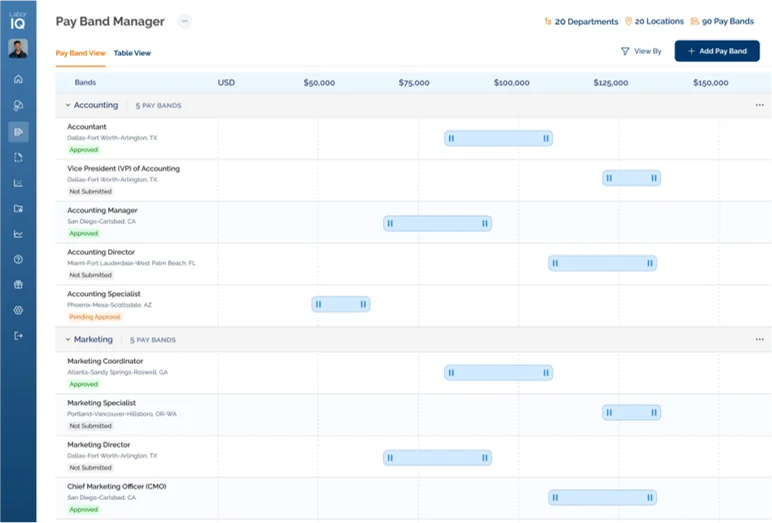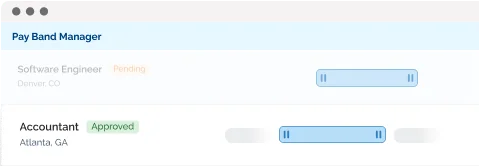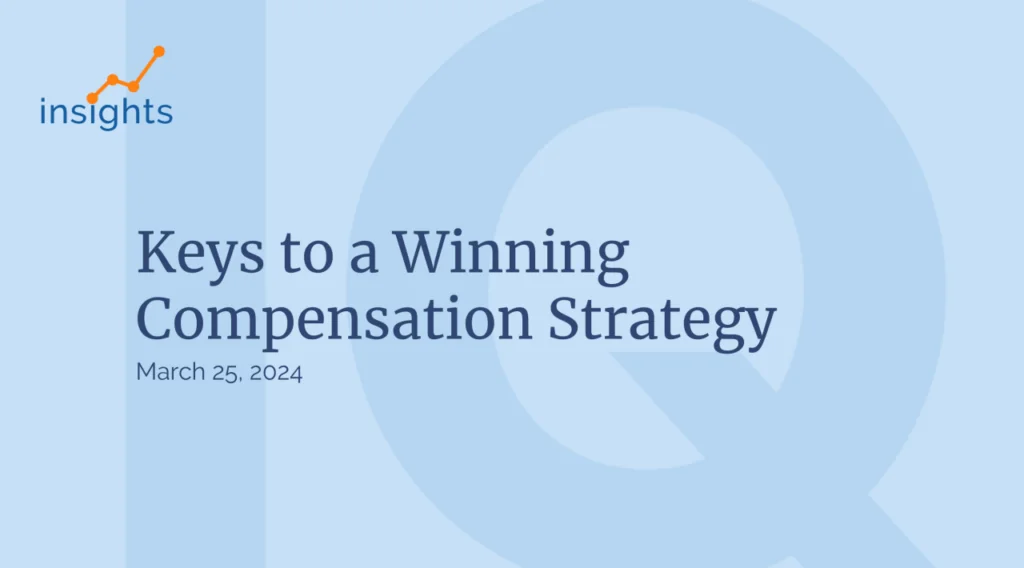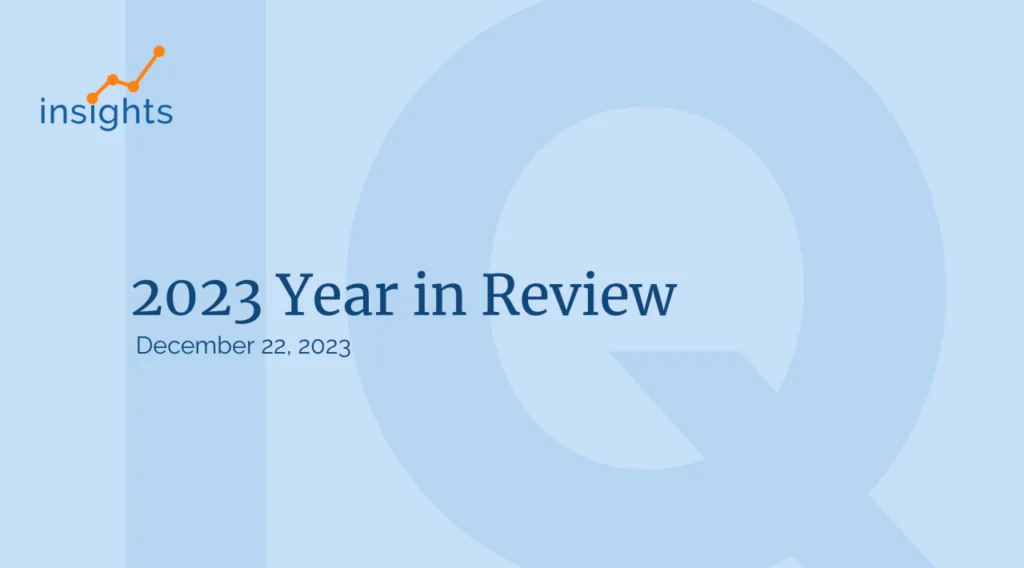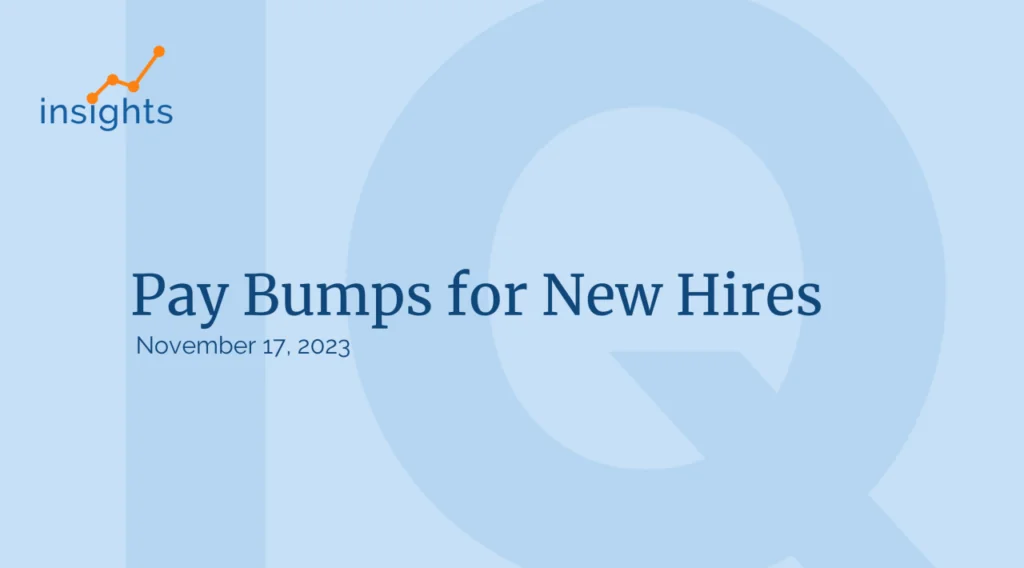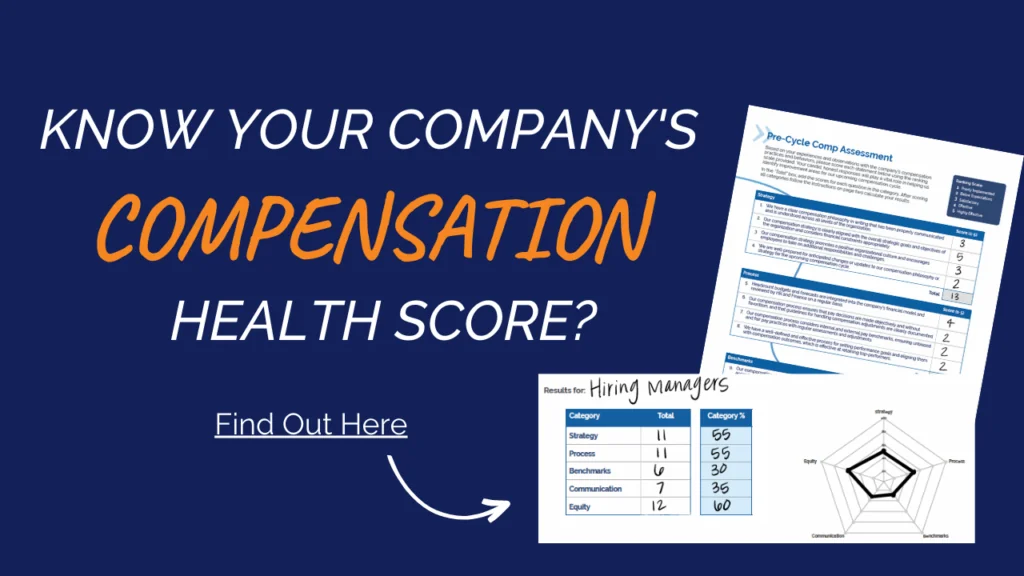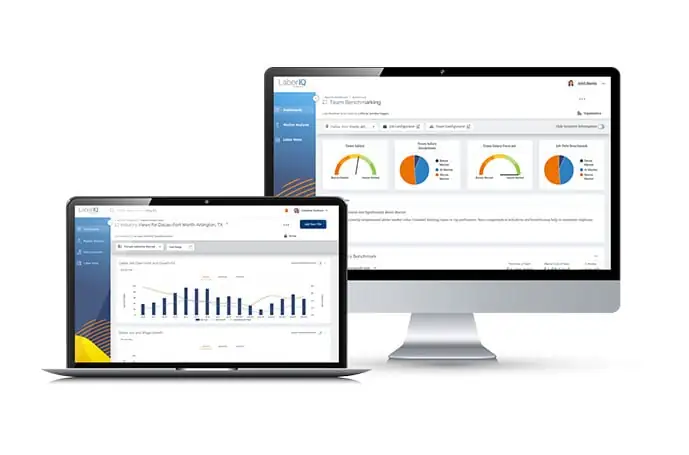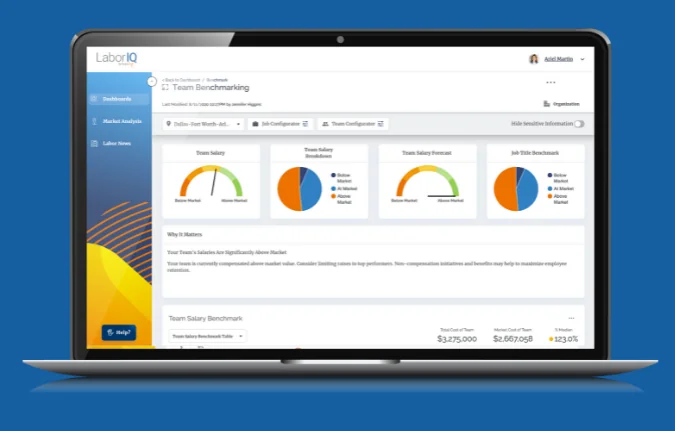Compensation benchmarking is the process HR leaders and compensation analysts use to set salary guidelines for jobs. They do this by comparing internal job positions to similar jobs in the industry and using market salary data from various sources to better understand the average salary for said position, industry and location.
Salary benchmarking is a vital component of compensation analysis. But however complicated as salary benchmarking might sound, it doesn’t have to be with the right compensation benchmarking tools.
So, with all that said, we hope to answer your questions about the compensation benchmarking process. There’s a lot to cover, so let’s dive right in…

Why is Salary Benchmarking Important?
Salary benchmarking helps your organization stay on top of salary trends in your industry. For instance, as recently as June 2022, unemployment rates remained at a record low of 3.6%. For several months, the U.S. labor market has remained tighter than ever. As a result, more job openings appeared on the market than there were candidates to fill them. Consequently, this prompted many businesses to compete for the top talent by boosting salaries. As a result, average hourly earnings rose faster than estimated: 5.1% from the previous year.
Although the labor market is beginning to show signs of easing, the labor shortage that ruled the late quarters of 2021 demonstrated the importance of offering competitive salaries. Understandably, employees are unwilling to work for less than they’re worth. As such, keeping up on salary trends is imperative because talent will simply leave your company for an organization that pays the market average (or higher).
What are the Benefits of Salary Benchmarking?
Here are the key advantages of making salary benchmarking a recurring part of your compensation management strategy:
- Salary benchmarking enables you to see whether you’re offering employees fair compensation, which, in turn, makes them feel valued and considerably impacts staff morale and retention.
- Salary benchmarking provides the data you need to offer competitive salaries to stand out in a tight labor market.
- You’ll learn when you’re overpaying staff so that you can adjust accordingly with future hires.
- You’ll be able to create a clear compensation structure that will simplify compensation negotiations and more efficiently (and fairly) help you decide on the salary offers to make.
How Do You Undertake the Compensation Benchmarking Process?
Below we’ve outlined the critical steps to salary benchmarking:
- Understand the Key Attributes of Each Position
Salary benchmarking doesn’t only rely on numeric data. Instead, it’s imperative that you also understand the value each employee brings to your company and how their performance is measured. Needless to say, high performing employees should be paid more.
As such, you need to know the requirements for each job. Here are some questions you can ask yourself to get the ball rolling:
- What experience is required?
- What education is necessary?
- What are their daily responsibilities?
There are just a few considerations, but you get the idea.
Next, consider the attributes that set high performing employees apart. What entitles them to earn the top end of the salary range for this job? For example, do they have additional credentials or training? Do they take on more responsibilities? How long have they worked in this position?
- Find Relevant Compensation Benchmarking Data Sources
Compensation data can come from surveys, aggregate market data or employee-reported data, such as on websites like Glassdoor.
With so many compensation benchmarking data sources available, assess which of these best suits your needs. Remember, you’ll ideally want to compare yourself with competitors in your local area to ensure compensation rates don’t vary based on living costs in other states.
The most reliable data source is the information that comes from high quality compensation benchmarking tools. Platforms like LaborIQ can source compensation data from thousands of businesses to produce accurate salary reports for your specific industry and location.
What are Some Salary Benchmarking Best Practices?
A salary benchmark is ultimately only as good as the data you obtain. For example, suppose you source compensation data from a small market sample. In that case, you might not clearly understand trends across your overall industry. Plus, as we’ve already hinted, compensation benchmarking data varies significantly between locations, which can further reduce the sample’s accuracy.
That said, here are some of our salary benchmarking best practices:
-
Only use data sources related to the specific jobs you hire for, industry and competitors. Looking at sources unrelated to your business can reduce the accuracy of your results. Compare primarily with:
- Companies in your location.
- Companies in the same industry.
- Companies of a similar size.
If you’re purchasing compensation data, ensure your direct competitors are included as survey participants.
-
Match jobs based on their descriptions and responsibilities, not just title. Different companies might have a slightly different understanding of the roles and duties conducted under the same title. As a result, the workload might not be a match.
-
Find as many overlapping jobs as possible to clearly understand salary benchmarks. Some jobs are more difficult to evaluate because they’re less common. In these instances, find similar jobs with overlapping responsibilities and calculate an average between them.
-
Look for a job description match of around 80%. Anything less than this is likely to have a high margin for error.
Ace Salary Benchmarking with Compensation Benchmarking Tools
As you’ve seen, salary benchmarking is the first step in ensuring you offer fair pay, empowering you to feel confident when you make a new offer. In addition, this data-driven approach helps root out bias and clear up any confusion around the often sensitive discussions surrounding pay.
That said, salary benchmarking can be costly and time-consuming. If you undertake the compensation benchmarking process manually, you may have to spend a long time researching other businesses. You may also spend significant money on purchasing survey data with the risk that the information you’ll obtain isn’t a good match for your internal jobs.





